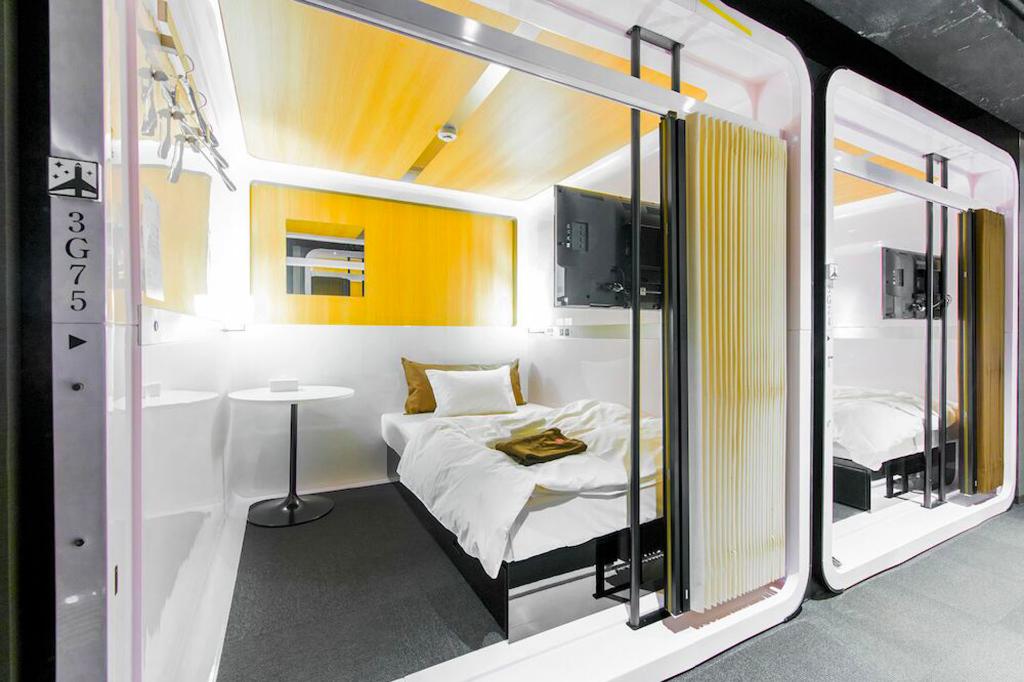Why capsule hotel room is new trend, its use and benefits

Capsule hotel rooms are rapidly getting a lot of buzz nowadays, the compatability and availability of the rooms at the visitors pocket size is the biggest reason for its expansion from Japanese cradle, including now in Milan where the tiny, stacked rooms are helping the Italian city cope with exploding tourist numbers.
With no-fuss convenience for both the city and transport links, digital connectivity and a social side among their chief selling points, the capsule hotels target the Generation Y crowd.
Croatian tourist Dragan Kupresanin, 31, said he wanted to try the room because "it looked like something new, futuristic style... those kind of boxes that you sleep in".
After sleeping like a log at Ostelzzz, down a quiet street in the centre of Italy's economic capital, he's ready for more.
"I really liked it. This kind of hotel should be developed, many people avoid youth hostels because of the privacy problem (with bunk beds etc) but here you have it," he said.
In the size of one standard hotel room, eight capsules -- each measuring 1.45 by 1.45 by two metres (4.5 x 4.5 x 6.5 feet) -- are stacked on top of each other, four above and four below, with an enclosed toilet space in the room and showers down the corridor.
Inside the capsule is a mattress with duvet and pillow, two charging plugs for mobile phone or laptop, a lockable cupboard for luggage and a bedside table.
All this for between 19 euros a night ($21), including breakfast, and 150 euros during Milan's world-famous Design Week.
From where it actually started -
The first Capusle rooms were used in Osaka Japan, 1979. As at that time it didn't get so many noisy mouths to let it propogated to the world. But as of now, where the population is at peak and the availability of space has shrunk, also the budget to stay in a hotel also have increased, these capsules are the new way to handle the situation.
Since then, the concept has taken off around the world, first in airports, from Paris to Moscow and Bangkok, and then in cities like Singapore, Seoul or Mumbai.
Nevertheless, in Europe, capsule hotels are rare outside of airports.
There is for example the City Hub in Amsterdam and the Lucerne capsule hotel which opened in Switzerland at the end of 2018.
Milan is the first Italian city to have a capsule hotel, but the company behind it, ZZZleepandGo, is expanding.
The only prblem is Claustrophobia -
The awkward fear of finding yourself locked in a small conjusted place leading to suffocation is the only negative thing about these kind of rooms, otherwise it is win-win solution for both, traveller and hotel owners.